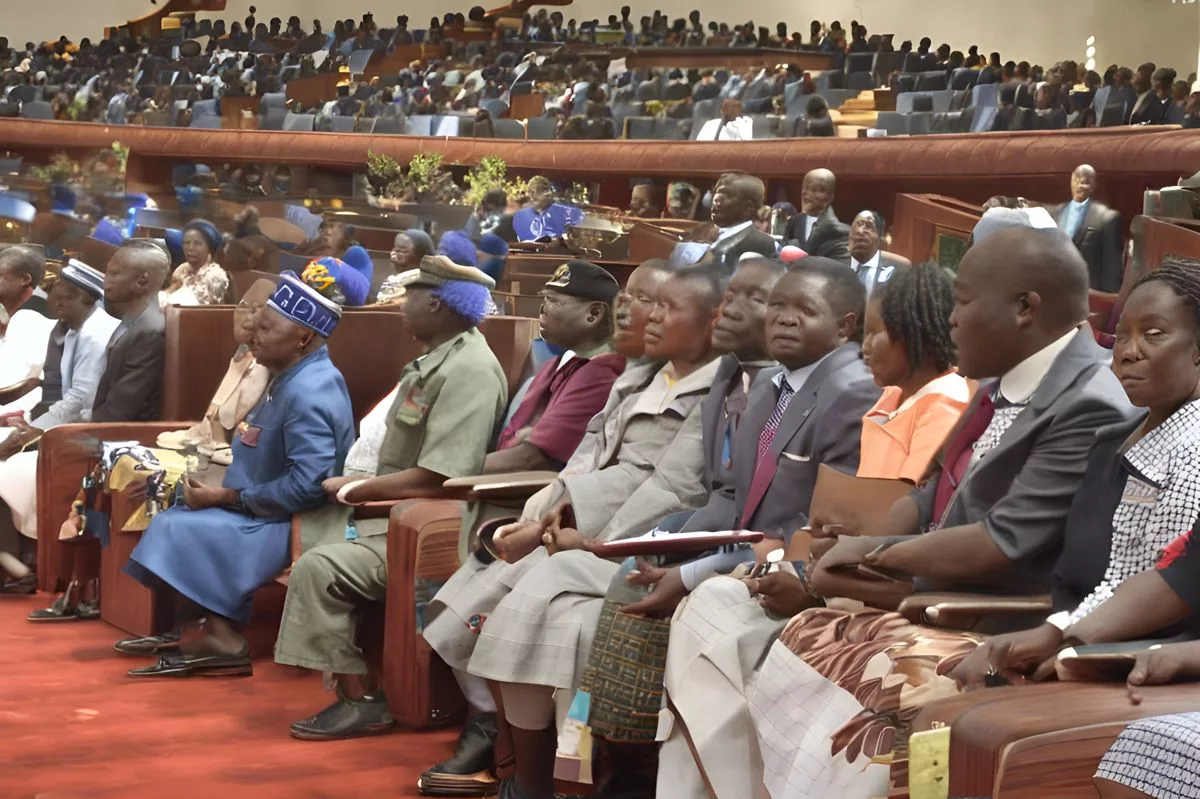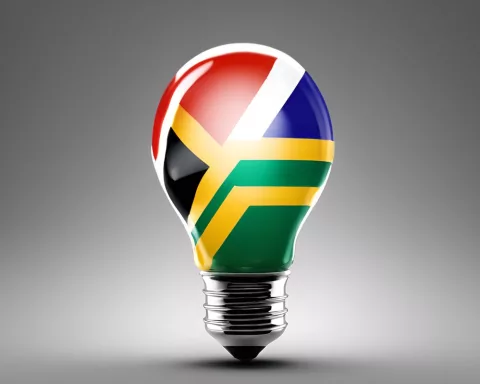On February 21, 2024, Cape Town City Hall hosted a momentous event, the annual Budget Speech presented by the Minister of Finance. The speech outlined the fiscal policy and financial priorities for the following fiscal year and was attended by members of the National Assembly and open to media and the public. The event highlighted the accountability and transparency of a functioning democracy, with media representatives capturing the proceedings and the public actively participating in the democratic process. It was a demonstration of democracy in action and showcased the mutual relationship between the government and its citizens.
What was the event held at Cape Town City Hall on February 21, 2024?
The event was the annual Budget Speech presented by the Minister of Finance, Mr Enoch Godongwana, which outlines the fiscal policy and financial priorities for the following fiscal year. The event was attended by members of the National Assembly and was open to the media and the public to promote transparency and accountability in a functioning democracy.
A Momentous Gathering
In the core of Cape Town City Hall, on February 21, 2024, a meeting of considerable significance was convened. Participants included members of the National Assembly, all eagerly waiting to partake in discussions that would influence the country’s economic path. The spotlight was on the Minister of Finance, Mr Enoch Godongwana, whose duty was to present the Division of Revenue Bill, also referred to as the Budget Speech. This annual event holds significant weight in dictating the fiscal course of the nation.
Mr Godongwana, known for his financial expertise, stepped onto the podium at exactly 14:00. He was given the onerous job of revealing the financial plan for the country. His responsibilities also included presenting the Appropriation Bill at this plenary session, another essential legislative piece dictating where and how these revenues will be utilized.
The hall was buzzing with anticipation as the participants prepared themselves for the disclosure of the financial plan that would support the nation’s economic prosperity. The Budget Speech, a vital element in a country’s economic planning, serves as a guide for the government’s fiscal policy and financial priorities. The strategy outlined by Mr Godongwana would influence the government’s financial choices for the following fiscal year.
A Focus on Accountability and Transparency
After Mr Godongwana’s speech, the House was set to review two reports from the Portfolio Committee on Justice and Correctional Services. The first report revolved around the suggestion to dismiss Judge President John Hlophe from his position, while the second focused on the proposed removal of Judge Nkola Motata. The potential dismissal of these two key figures from the judiciary was another topic of intense interest, highlighting the elements of responsibility and transparency that define a functioning democracy.
Amid the flurry of discussions, media representatives, fully accredited and ready, were on high alert, capturing and broadcasting each significant moment of this vital event. Their presence was evidence of the democratic ideals inscribed in the nation’s constitution, which stipulates that a parliamentary committee meeting should be open to the public “unless it is reasonable and justifiable to exclude them in an open and democratic society.” Thus, the media served as a crucial conduit, linking the public with the activities of their government.
Accessibility and Active Citizen Participation
For those who couldn’t be there in person, there were multiple channels to watch the parliamentary proceedings live. Options included Parliament TV (DSTV Channel 408), a live stream on Parliament’s website, Parliament’s YouTube channel, and Facebook pages. This approach of multiple platforms ensured the highest access, enabling the public to stay informed about their government’s actions.
While the media played a vital role, the vibrancy of the event was further enhanced by the presence of the general public. Their participation and involvement in the democratic process, either through organizing a tour, attending a debate, or merely being present, emphasized the significance of active citizenship in a democracy.
A noteworthy attendee at the assembly was Mr Nicholas Georg Myburgh, a representative of the Democratic Alliance. Mr Myburgh is also a member of the Portfolio Committee on Water and Sanitation, underscoring the diversity of the assembly in terms of their fields of interest and expertise.
A Demonstration of Democracy in Action
The assembly in Cape Town City Hall that Wednesday was not just a simple gathering; it was a clear display of democracy at work. It highlighted the mutual relationship between the government and its citizens, with legislative decisions made in a manner that was both transparent and accountable, and the citizens actively participating in these processes. Through this dynamic interaction, the democratic foundation of the Republic of South Africa was continually fortified and enhanced.
-
What was the purpose of the annual Budget Speech presented at Cape Town City Hall on February 21, 2024?
The purpose of the annual Budget Speech was to outline the fiscal policy and financial priorities for the following fiscal year, presented by the Minister of Finance, Mr Enoch Godongwana. -
Who attended the annual Budget Speech at Cape Town City Hall?
Members of the National Assembly, media representatives, and the public were in attendance at the event. -
What is the significance of the annual Budget Speech in South Africa?
The Budget Speech serves as a guide for the government’s fiscal policy and financial priorities for the following fiscal year, influencing the government’s financial choices. -
What role did media representatives play at the event?
Media representatives captured and broadcasted the proceedings of the event, promoting transparency and accountability in a functioning democracy. -
How was the event accessible to the public?
The event was accessible through multiple platforms, including Parliament TV, live streaming on Parliament’s website, YouTube, and Facebook pages. -
What was the significance of the public’s participation in the democratic process?
The participation and involvement of the public in the democratic process emphasized the significance of active citizenship in a democracy and highlighted the mutual relationship between the government and its citizens.











